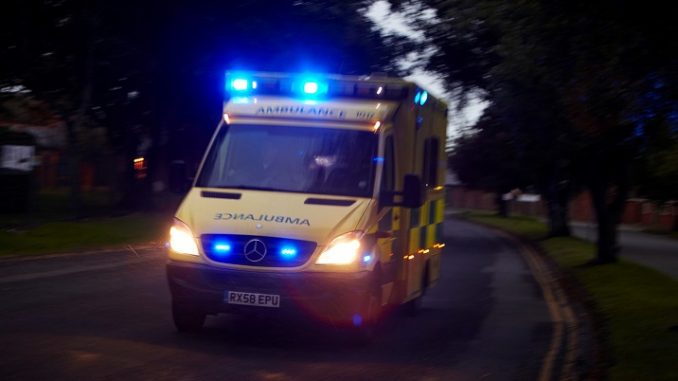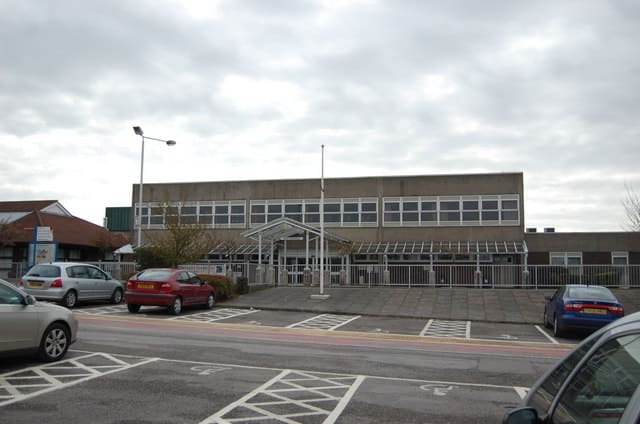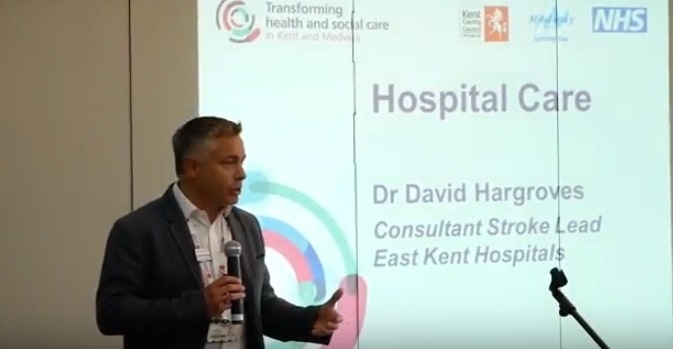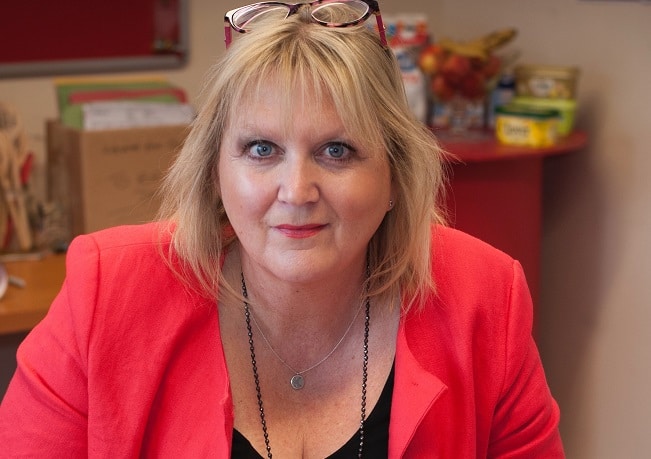
Three hyper acute stroke units for Kent and Medway are to be created – meaning current services will be removed from some hospitals, including QEQM in Margate.
General stroke services are provided in all the hospitals across Kent and Medway, including the QEQM, but there are currently no specialist hyper acute units. NHS bosses in the region say larger, specialist units in other parts of the country have been shown to improve outcomes for people who have had a stroke.
The hyper acute stroke units will each have a multi-disciplinary team of specialist stroke clinicians, seven days a week. The units will care for all stroke patients across Kent and Medway and from some neighbouring communities in Sussex and South-East London, in the critical first 72 hours after a stroke.
The NHS says as staff in the new hyper acute stroke units see and treat more stroke patients, they will become even more expert in their care. This is also expected to improve the recruitment and retention of staff, as it will give them greater job satisfaction, and greater opportunities to progress their careers.
In London, hyper acute stroke units have reduced deaths from stroke by nearly 100 a year.
The proposed shortlist for the hyper units
In developing the proposals there has been a process to review combinations of existing hospitals.
A proposed shortlist of possible options has now been created which reveals the hyper unit in east Kent will almost certainly be based at the William Harvey Hospital in Ashford.

The list, which is subject to further assessment and final approval, is:
- Darent Valley Hospital, Medway Maritime Hospital, William Harvey Hospital
- Darent Valley Hospital, Maidstone Hospital, William Harvey Hospital
- Maidstone Hospital, Medway Maritime Hospital, William Harvey Hospital
- Tunbridge Wells Hospital, Medway Maritime Hospital, William Harvey Hospital
- Darent Valley Hospital, Tunbridge Wells Hospital and William Harvey Hospital
There will be a full public consultation on the proposals following further assessment of the proposed shortlist and final approval. If approved the consultation will take place in February.
The eight clinical commissioning groups (CCGs) in Kent and Medway started reviewing stroke services in 2015.
A Joint Committee with delegated authority from the ten clinical commissioning groups in Kent, Medway, Bexley, and High Weald Lewes and Havens will meet on January 31 to discuss the shortlist.
The joint committee is public and takes place from 1pm to 4pm at County Hall, Sessions House, Maidstone.
‘Best care’

Dr David Hargroves, clinical lead for the stroke review, said: “This is incredibly good news because it means we will be able to ensure everyone treated in Kent and Medway gets the best care, no matter what time of day, day of the week or where they are when the stroke happens.
“Currently, although stroke staff do their very best, the way services are organised means that some people do not get the right treatment fast enough, particularly overnight and at weekends. Centralising urgent stroke care in three excellent hyper acute stroke units would change all that. Our dedicated staff would then be able to ensure the 3,000 people treated in Kent and Medway for a stroke every year get care which is right up there with the best in the country.”
‘All the options involve the William Harvey Hospital for east Kent’
Hazel Smith, Accountable Officer of NHS South Kent Coast Clinical Commissioning Group and NHS Thanet Clinical Commissioning Group, said: “All the options involve the William Harvey Hospital for east Kent because, as things stand, the William Harvey Hospital offers the other services that are beneficial to have on the same site as a hyper acute stroke unit.
“There is a separate review of the possible options for the future location of emergency care and specialist services in east Kent. It would be wrong to wait for this work to conclude and slow down the essential decisions we need on stroke. If, through the east Kent emergency and specialist service review, William Harvey Hospital were no longer to be a long-term option for emergency and specialist services and these moved elsewhere – then we would anticipate any hyper acute stroke service would move with the co-dependent services.”
Investment and recruitment
Kent and Medway NHS Trusts will spend up to £40million on the scheme for building work and equipment at the hospitals and recruiting more staff across the county.
They say the investment will eventually reduce costs because patients will be diagnosed and treated faster, needing less care after they leave hospital and suffering less disability. They say the plan will also reduce deaths with each option allowing at least 98 per cent of people in Kent and Medway to access a hyper acute stroke unit by ambulance within an hour.
People whose stroke is caused by a blood clot need to have clot-busting treatment, known as thrombolysis, within two hours of calling 999. Currently, only half of people in Kent and Medway who need this treatment get it within two hours because specialist staff are spread across many sites.
Each of the proposed hyper acute sites will have an acute stroke unit to give patients care after the first 72 hours until they are ready to leave hospital and a clinic for assessing and treating transient ischaemic attacks (TIAs or mini strokes).
Concerns

County and district councillor for Thanet, Karen Constantine, said she has concerns about the proposals.
She said: “ I think this is the continuing and stealthy hollowing out of clinical care at QEQM, which appears to be getting ‘run down’.
“Stroke services are now mainly straight forward to deliver in most cases. Such treatment should be available locally. It’s medically vital that anyone suffering a stroke gets to a hospital as soon as possible. Within one hour is the recommendation.
“I’m extremely worried as lots of standard clinical procedures are gradually going missing from QEQM.”
Attending the meeting
If you would like to attend, book your place by first registering via https://strokejcccg.eventbrite.co.uk .
If you do not have access to the internet and would like to book a place, call the Joint Committee admin office on 01892 638331.
Booking is essential as space is limited.
What is a stroke?

Stroke is a serious, life-threatening medical condition that happens when the blood supply to the brain is cut off by either a blockage or a bleed in one of the blood vessels, causing damage to the brain tissue.
The effects of a stroke depend on which part of the brain is injured and how severely it is affected. We know that the care given in the first 72 hours after a stroke has the greatest impact on reducing long-term damage and disability.
The type of treatment needed depends on the type of stroke, and whether it is caused by a bleed or a blockage, which can only be determined by expert diagnosis.
What is the impact of stroke?
Stroke is the fourth biggest cause of death in the UK and the largest single cause of severe disability.
Some groups of people are more at risk of a stroke, including older people and people with Indian, Bangladeshi and Pakistani heritage. Smoking and obesity are also major factors in increased stroke risk.
However, stroke is a preventable and treatable disease. Fewer people have been dying of stroke since the late 1960s. This is in part due to a better understanding of the causes of stroke, and how to prevent them. It is also because of the development of specialist stroke units and the use of clot-busting drugs, called thrombolysis.
Stroke care can be separated into three sections:
- Prevention: supporting people to follow healthy lifestyles and reducing the numbers of people who are at risk of, or experience, a stroke
- Urgent: the care given while a person is experiencing a stroke, mainly focusing on getting a person to a team of highly trained stroke specialists as quickly as possible to resolve the stroke and reduce long term disability
- Rehabilitation: rehabilitation following a stroke to give the highest quality of life possible.
Hyper acute stroke units
The hyper acute stroke units will each have a multi-disciplinary team of specialist stroke clinicians, seven days a week. The units will care for stroke in the critical first 72 hours after a stroke. Each of the hyper acute stroke units will be bigger than any of the current stroke services and treat at least 500 patients a year.
They will be open 24 hours a day, seven days a week with access at all times to brain scanning equipment and clot-busting drugs (thrombolysis) and the consultant cover to review scans and provide thrombolysis.


Well. This government is certainly on track for reducing the population. How about they stop trying to privatise our NHS and invest that money in Doctors and nurses so they stop leaving the profession. There’s a conference in Broadstairs on the 27th worth going to. Lots of eminent speakers. We really need to save our services
Thanet patients will find it almost impossible reaching the William Harvey hospital in Ashford and receiving treatment within an hour so this is not a good option for thousands of people.
So no stroke services within golden hour in east Kent, matches lack of heart facilities at QEQM…